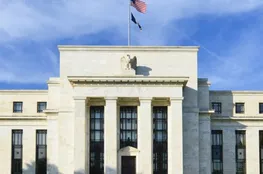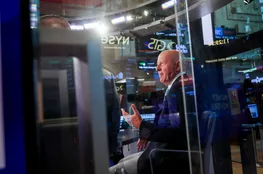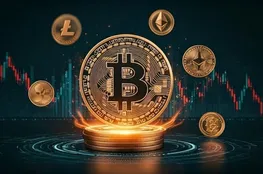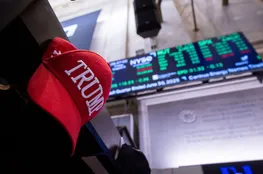In today’s unpredictable market environment, characterized by sky-high valuations and conflicting behaviors from market participants, it's crucial to have a robust election volatility plan. Amidst this turbulent backdrop, we see both the S&P 500 and gold performing exceptionally well—a scenario rarely seen historically. Quantitative investors like Meb Faber point to this as a hallmark of an unusual market. Despite potential gains, it's essential to recognize the precarious nature of these times.
Notably, insider selling has reached its highest levels since 2021, indicating a potential lack of confidence among executives regarding future company performance. Contrastingly, hedge funds are buying U.S. stocks at unprecedented rates, even as stocks remain historically overvalued per the Buffett Indicator. This indicator, comparing stock market capitalization to GDP, suggests caution when ratios approach 200%, a warning level last seen during significant bubbles.
Besides the concerning equity market valuations, cash allocations are notably low, challenging the notion that sidelined cash can perpetually sustain bullish momentum. A critical question arises: where will new money come from to push markets higher if most players are already fully invested? Globally, geopolitical dynamics add further complexity. The recent BRICS summit signaled a challenge to dollar dominance with calls for a revamped global financial system. With leaders like Russian president Putin and Chinese president Xi Jinping advocating for alternatives to current systems, the geopolitical landscape is shifting dramatically.
Jamie Dimon, CEO of JPMorgan, expressed grave concerns over the geopolitical alliances and tensions, likening the situation to a quiet onset of World War III. Domestically, the upcoming U.S. election adds another layer of uncertainty. With Vice President Kamala Harris and former President Donald Trump closely matched, the financial implications under either administration raise alarms. Both candidates are expected to further strain the national debt, potentially igniting upheaval in the bond market reminiscent of a "Minsky moment," where unsustainable fiscal policies lead to a sudden market realization and dramatic asset price corrections.
Investment strategists like Louis Navellier emphasize the importance of preparing for post-election volatility. With forecasts indicating potential market chaos following the election, adopting proactive measures can help investors safeguard their portfolios. Tomorrow, Navellier will discuss strategies to turn anticipated volatility into profit opportunities, deploying proprietary investment systems designed to perform irrespective of the election outcome.
In summary, as we navigate through these anomalies—from economic indicators to geopolitical challenges and electoral uncertainties—it is imperative to have a well-considered strategy to manage and capitalize on market volatility. Stay informed and plan ahead to protect your financial future in these unconventional times.
























